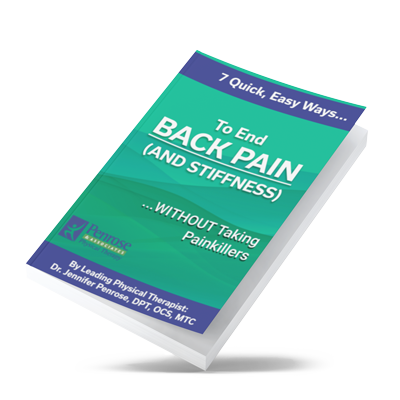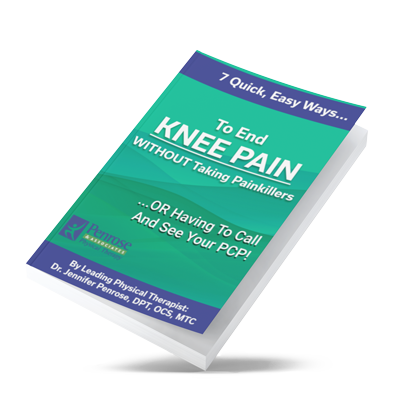The last few weeks we’ve seen a lot of people coming into the clinic with balance issues and being worried about falling. It’s what we see quite a lot of, but still many people don’t know that physical therapists can help with their balance. We like to have a bit of fun when we’re testing people’s balance, making it easier for them. We like to play “one-legged darts” and do the “can you walk in a straight line?” test, to find out just how steady (or how wobbly) people are on their feet.
After we’ve done these little tests, everyone always says, “I didn’t realize my balance was that bad!” And it’s true! Most of us rarely realize we have a problem with our balance until it’s pointed out and made obvious to us. Even though not all of us have superhuman balance like gymnasts and ice skaters, we need a certain level of balance to help us go about our daily activities without falling over and hurting ourselves.
So, I wanted to share the most common signs and symptoms to look out for when it comes to wobbly balance and an increased risk of falls.
One of the most common signs is dizziness. Everyone has a dizzy spell now and then, but the word “dizziness” may mean something different to different people. For some people dizziness might be a fleeting sensation of spinning while for others it feels intense and lasts a long time. If you find yourself feeling as though the room is spinning around you; if you feel as though you’re moving even when you’re sitting or standing still; and if you feel lightheaded and experience faint spells frequently, then it’s a good sign you have a balance problem.
Another sign that a lot of people brush to the side as just a part of getting old–or as sitting at a desk all day–is poor posture. The muscles in your core and lower back work together to hold your spine and pelvis in place. If these muscles are weak, your body will be unstable, and you won’t be able to stand steadily for more than a short period of time. Instead, you’ll look slouched and slumped over, which in turn will strain your muscles. And if because of poor posture, you find yourself having to lean on things like the supermarket cart or the stair railing to help you move around, there’s a good chance you need to work on your balance.
Low back pain is also a sign that your balance is slowly getting worse. The back and core help support the body and keep you standing tall, but if the muscles are weak and your back isn’t straight, then your back will be in pain. And believe it or not, low back pain can be brought on by bad balance and a weak core. In fact, all of them go hand in hand together!
Something else we hear a lot of our clients say is that they have to rely on their husband or wife to help them get around the house. Because of that they even lack the confidence to leave the house in case they might feel a bit unsteady and “slip over” in front of people. Or worse, they have no one there to help them get back up! We even had one lady tell us about the time she fell over in the supermarket a few days prior to coming to us. She was embarrassed because she was alone and had no one there to help her, so she has asked her husband to do the food shopping for her instead.
There are lots of signs that your balance is off. Although some are more extreme than others–like falling over unexpectedly and feeling worried about leaving the house–some are more subtle. However, if you notice the signs and act on them quickly, you can help lessen the risk of falls and in good time get better balance.
Everyone who has come to the clinic in the last few weeks came not knowing how bad their balance really was until we helped them find out.
That’s all from me this week. I hope this information has been helpful to you or someone you know who might be suffering with balance and/or falling issues. Until next time, have a great week!
The author, Jennifer Penrose, is a Physical Therapist and owner of Penrose Physical Therapy. If you have any questions about osteoporosis, soft bones, or balance and falls, you can call (360) 456-1444 or contact us by email at jennifer@penrosept.com






